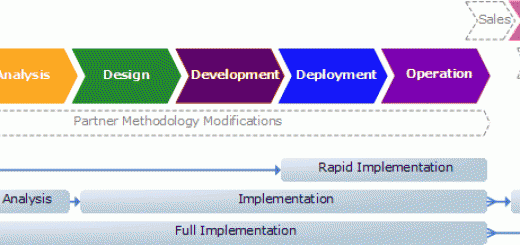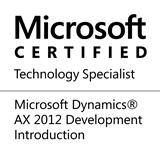Enterprise Resource Planning
You might have heard the word ERP a lot of times and you might have not totally understood the ERP systems. ERP is short form for Enterprise Resource Planning and contains the meaning and objective in its own name. I will try to make you understand the ERP in a very easy way.
Enterprise
Enterprise is a business entity which encompasses corporations; Small & Medium sized industries, Non-Profit Organizations, & Government Bodies. The word enterprise is commonly used for larger organizations.
Resource
A resource is any physical or virtual entity that has utility and value and exists with limited availability. A resource is used to provide service and produce new goods. An enterprise’s goal is to utilize its resources to maximum and to get maximum output and with minimum cost.
Planning
Planning includes the planning of organizational process and maintaining it. It also includes defining the goals and thinking of future performance of organization. Planning in an organization also includes deciding the tasks and resources to achieve the defined goals.
So an ERP software
- Integrates all data and processes of an Enterprise into a unified system
- Enables seamless flow of information across the Enterprise
- The integration optimizes functions across the enterprise
Combining the three definitions we can create something like an Enterprise resource planning system is software that does the resource planning for an enterprise to gain maximum output with minimum cost.
What makes a great ERP system
Enterprise Resource Planning software integrates various business processes such as inventory, production, sales into one complete system to streamline processes and information across the entire organization providing strategic planning and managerial control.
ERP integrates all the basic functions of an enterprise such as production, sales, purchase, human resources, customer care, and inventory
ERP supports data warehousing while integrating the data from all business process
ERP gives the basis for complex reporting and analysis of business trends
ERP solution gives the granularity of data providing high-level details to the transactional view of data
Why ERP systems?
In order to answer this, I will not just state what an ERP does. I will take a different approach. If not ERP systems, then what else. The answer is standalone systems. Examples include inventory management system, Customer Relation Management, Supply Chain Management systems. I will compare ERP system with anything that was before ERP system
Integrated Information System
The standalone systems exist in isolation. ERP is integrated system and is a suite that works together without which there will not be seamless flow of information.
Increased coordination between business processes
With ERP systems, since all business processes are unified, they have increase coordination among themselves. The standalone systems were isolated and there is less or no coordination between them.
Single database
ERP systems has integrated database with data having same meaning across multiple functions while standalone systems have non-integrated databases.
Maintenance
It is difficult to maintain multiple standalone systems. In case of ERP system, it is a unified system and can be maintained easily. A single change affects multiple functions. Researchers have showed that companies spend a lot of time reentering data over multiple places in the standalone systems and there is a high chance of error in this case and redundancy is created. With ERP system, the system is intelligent enough to update the record in the relevant area as a result of change in one area.
Interface
If you are running inventory system and one sales system (both standalone system), you can imagine that the interface you would be looking at is different from each other. ERP systems have consistent interface over all the processes.
Information
Another problem with standalone systems is that the information is scattered and redundant. In ERP system since all the business processes are unified, the information is real-time and is not redundant and is not scattered. A change done in general ledger will be immediately visible in another module where data is being retrieved from general ledger.
System Architecture
The standalone systems architecture may not be the state of the art. ERP systems have client/server architecture and designed with the aim in mind to make it scalable, and reliable.
How an ERP benefits your business
If you already know the benefits you can skip this section, or if you don’t want the how, then you can just read the headings. If you are interested in reading please carry on.
Streamline business processes
One of the most important benefits of using an ERP system is to streamline business process. An ERP system is so well integrated that it seamlessly organizes the business processes. By providing workflows, notifications, update and reflect change at related area, an ERP system organizes the business processes.
Integrated business operations
The business operations such as Production, Sales and Marketing, Procurement are tightly integrated and they communicate with each other.
Reduces operating costs
Employees of an organization can easily log into any specific area and get the required report within seconds. This not only saves time but labor that would have done that reporting tasks in a manual system.
Operational Control
ERP gives great control over business operations. For example, one can track the 3-way match between the Purchase Order, Inventory receipts and Costing.
Management Control
The reporting, business analysis reports and the business intelligence reporting that helps define business trends give the management a great control and helps them with decision making.
Strategic Planning
Strategic planning is very important for an enterprise/organization. The Enterprise resource planning provides such methods that improve the strategic planning of an organization.
Covers most common business process
As mentioned before ERP covers the most common business processes such as Sales, marketing, Production, Project Management, Accounts, Human Resources and most importantly Finance.
Can fit to your specific industry business needs
A good thing about ERP systems is that they can be customized to fit your specific or custom business needs. A good ERP system will always give you this flexibility.





